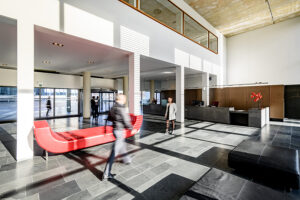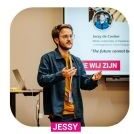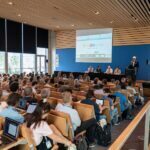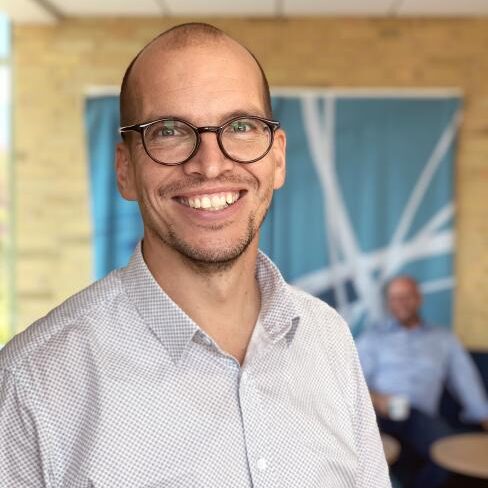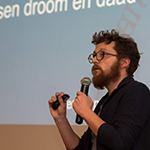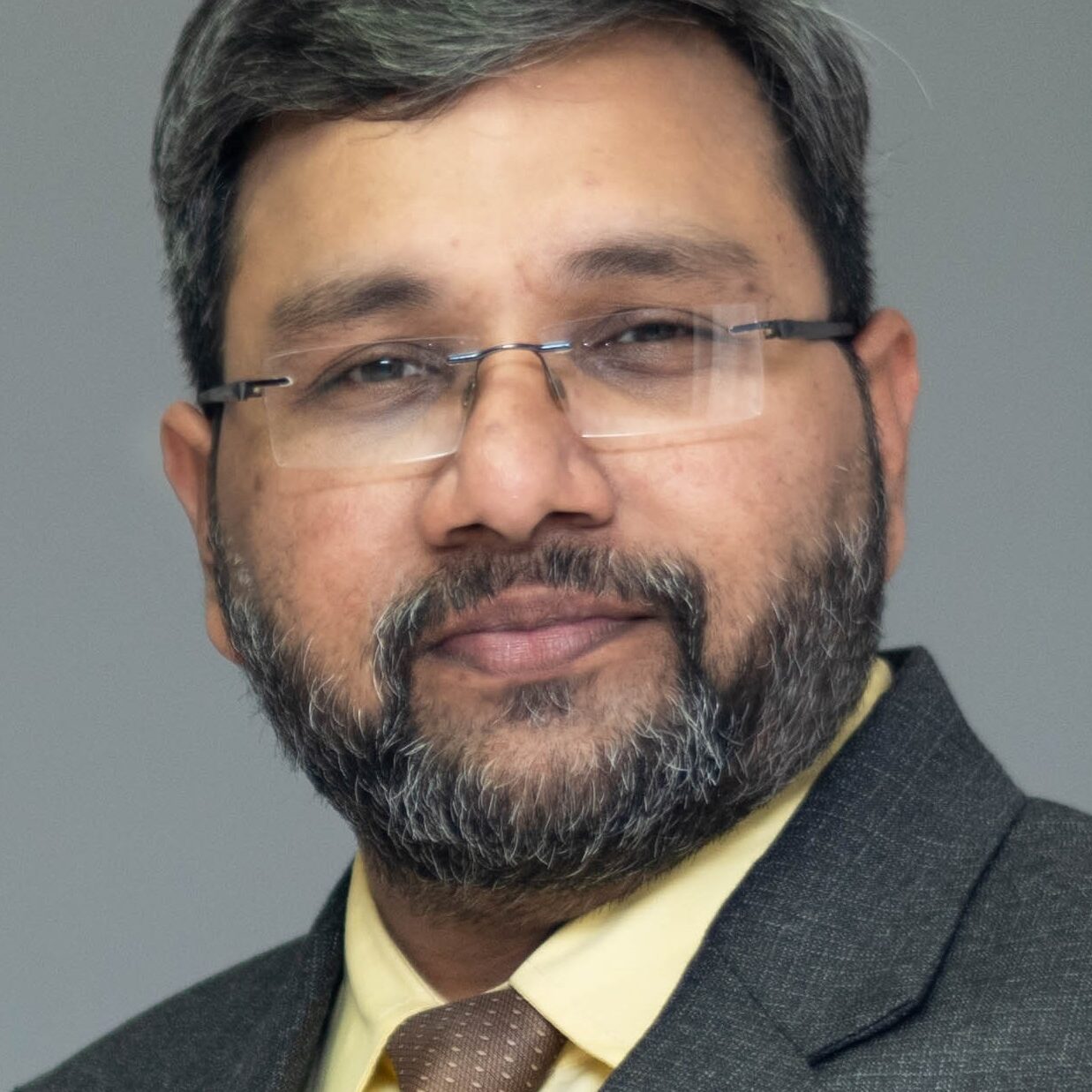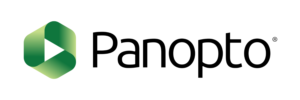Educational media that works
Leuven, Belgium | 18-19 June 2025
More and more the question posed to all members of the Media & Learning community is whether the media supported resources and learning opportunities that they create really make a difference when it comes to learning. What if there were more immersive elements? A stronger focus on story-telling? More involvement of students? More and better production techniques supported by AI? In an environment where dwindling resources are increasingly the norm, knowing how to make the very most of every opportunity to improve learning is, for all of us, a very real priority.
This is why the organisers of this year’s Media & Learning conference have opted for the tagline Educational media that works as we believe it points to the importance of making the best-informed choices that we can when it comes to choosing and using media. This year’s event, organised jointly with KU Leuven’s Learning Lab, will be jam-packed with opportunities to share and learn from colleagues. Taking place in the historic city of Leuven in Belgium on 18-19 June 2025, this event will bring together a vibrant community of educators, researchers, and innovators from different parts of Europe and beyond who are equally passionate about leveraging media in support of learning in higher education.
This conference is aimed at all staff working in centres for teaching and learning, educational media production centres, learning innovation departments, educational departments, audiovisual services as well as researchers and policy-makers keen to explore the added value of media in teaching and learning. At its heart is an exploration of the who, how, what, why and where of educational media production in higher as well as other associated educational sectors.
*Due to space limitations, registration will be necessary to attend some sessions taking place in smaller rooms at the upcoming conference. We'll share the registration link one week before the event, on June 11th at 12:00 CEST, ensuring equal opportunity for all interested participants. Please note that there won't be waiting lists, but in the event of no-shows on-site, available seats will be allocated on a first-come, first-served basis. We hope that this approach will help us manage attendance efficiently and guarantee a comfortable experience for all attendees. Keep an eye out for the registration link, which will be shared via email, to secure your spot !
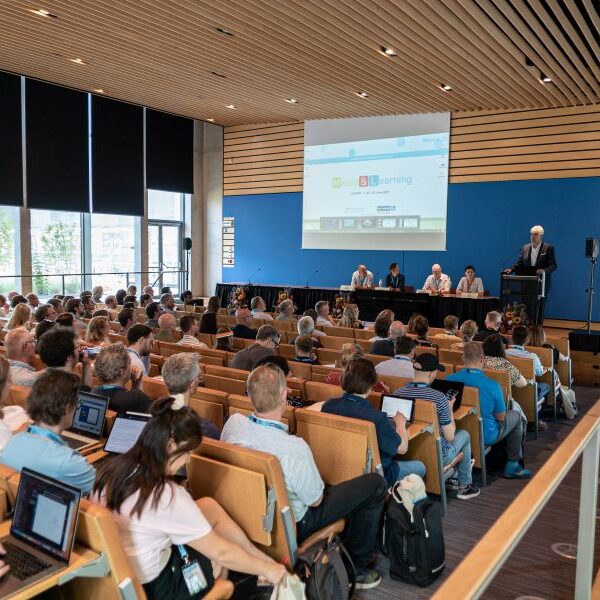
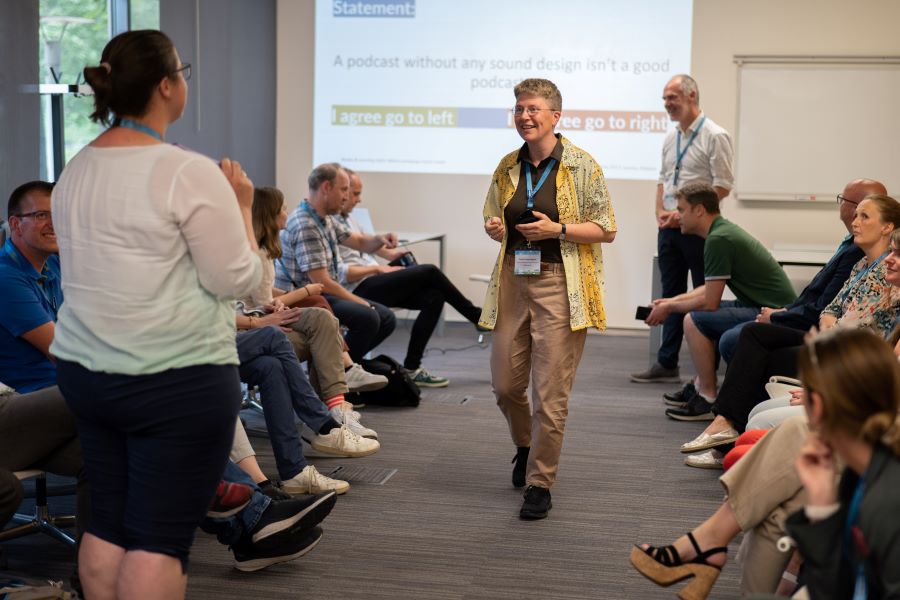
Keynotes
Keynote speakers @ Media & Learning 25

Vice Rector for Educational Policy, KU Leuven, Belgium
KU Leuven and GenAI: it takes many to tango

University of Oslo, Norway
Attention, Curiosity, and Memorability: Insights from Cognitive Science and AI
Why do some images, words, or experiences remain vivid in memory, while others vanish quickly? Cognitive science research reveals that attention, curiosity, and memory are shaped by the brain’s limited capacity and how it prioritizes information. Everyday experiences like inattentional blindness and divided attention show how easily we can overlook important details. Studies on memorability have uncovered consistent patterns in what people remember and forget. AI can now identify and enhance memorable content, opening new possibilities for optimizing learning and retention.

Researcher at the Royal Institute for Theatre, Cinema and Sound (RITCS) in Brussels, Belgium
Generative AI for audiovisual media and live entertainment - what will the next six weeks bring?

Distinguished Professor of Psychological and Brain Sciences, University of California, USA
In conversation with Richard E. Mayer, University of California, USA
Moderator: Lucy Kendra, Heriot-Watt University, UK
World renowned educational psychologist Prof. Richard E. Mayer needs little introduction to the Media & Learning community given his major contribution to research into the role and design of video for learning. Mayer’s principles continue to form the basis for much of the work carried out in our sector. During this plenary session, Richard will join us live from his home in California and will begin with a talk on what makes multimedia instruction effective. We will then open up the discussion with Richard to include inputs from our panellists and conference attendees.
Panellists:
- Lana Scott, MIT, USA
- Elke Van Ael, KU Leuven, Belgium
- Zac Woolfitt, Inholland University of Applied Sciences, The Netherlands
*Prof. Richard E. Mayer will be joining us online

President of France Immersive Learning / Executive Advisor, Arts et Metiers Institute of Technology, France
Looking for a media that works? Try Immersive Learning!

Team Leader for the Digital Education Ecosystem and Evidence, Digital Education Unit, DG EAC
European digital education policy – working towards a robust digital education ecosystem

Project Leader for the Centres for Teaching, Npuls, The Netherlands
Becoming a Learning Organization: The Rise of Centers for Teaching & Learning
Testimonials
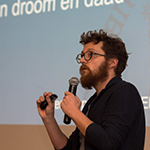 "The conference is always a delight, offering a warm and welcoming space to reconnect with colleagues from around the globe. Its low-threshold approach makes it accessible to everyone, fostering an inspiring exchange of both systematic research and practical ideas that can be immediately applied in higher education." Andy Thys, Instructional Designer KU Leuven, Belgium
"The conference is always a delight, offering a warm and welcoming space to reconnect with colleagues from around the globe. Its low-threshold approach makes it accessible to everyone, fostering an inspiring exchange of both systematic research and practical ideas that can be immediately applied in higher education." Andy Thys, Instructional Designer KU Leuven, Belgium
 "Media & Learning conferences have been an incredible experience for me. They bring together a great mix of passionate professionals from the media and education sectors. The event perfectly bridges these two worlds, fostering insightful conversations and inspiring collaborations. It’s the ideal space to exchange ideas and learn from innovative thinkers." Carlos Turro Ribalta, Head of Media Services department Universitat Politecnica de Valencia, Spain
"Media & Learning conferences have been an incredible experience for me. They bring together a great mix of passionate professionals from the media and education sectors. The event perfectly bridges these two worlds, fostering insightful conversations and inspiring collaborations. It’s the ideal space to exchange ideas and learn from innovative thinkers." Carlos Turro Ribalta, Head of Media Services department Universitat Politecnica de Valencia, Spain
 "Attending the Media & Learning conference was an invaluable experience. It offered a unique opportunity to connect with educators from around the world who share a passion for blending learning design and media to shape the future of online education. The insights, collaborations, and innovative ideas I gained have greatly enriched my perspective, while the relationships I’ve built are opening new doors to drive meaningful change in our work." Jeremy Nelson, Senior Director of XR, Media Design & Production University of Michigan, USA
"Attending the Media & Learning conference was an invaluable experience. It offered a unique opportunity to connect with educators from around the world who share a passion for blending learning design and media to shape the future of online education. The insights, collaborations, and innovative ideas I gained have greatly enriched my perspective, while the relationships I’ve built are opening new doors to drive meaningful change in our work." Jeremy Nelson, Senior Director of XR, Media Design & Production University of Michigan, USA
 "Attending the M&L event is an experience filled with innovation and international appeal, bringing together a vibrant space full of smart people eager to explore the future of education. Each session leaves you wanting more, offering unmatched networking opportunities where connections often spark the beginnings of beautiful friendships. This is not just a conference; it’s an inspiring journey that stays with you long after it ends." Monika Theron, Team lead Data & Media Leiden University, The Netherlands
"Attending the M&L event is an experience filled with innovation and international appeal, bringing together a vibrant space full of smart people eager to explore the future of education. Each session leaves you wanting more, offering unmatched networking opportunities where connections often spark the beginnings of beautiful friendships. This is not just a conference; it’s an inspiring journey that stays with you long after it ends." Monika Theron, Team lead Data & Media Leiden University, The Netherlands
 "I look forward to the Media & Learning conference every year. An excellent opportunity to be updated on new developments about media in education, or to get a fresh perspective on things you thought were already crystallised. In addition, a great place to catch up with old acquaintances and make new friends." André Rosendaal, e-Learning Project Manager, University of Groningen, the Netherlands
"I look forward to the Media & Learning conference every year. An excellent opportunity to be updated on new developments about media in education, or to get a fresh perspective on things you thought were already crystallised. In addition, a great place to catch up with old acquaintances and make new friends." André Rosendaal, e-Learning Project Manager, University of Groningen, the Netherlands
Speakers and moderators
Venue
This year’s Media & Learning Conference is being held in the splendid Provincie Vlaams-Brabant - Provinciehuis.
Provincie Vlaams-Brabant - Provinciehuis is about a 10 minute walk from the train station and an 20 minute walk from the city centre.
Take a look at our suggested accommodations and travel advice. Please note that we have no affiliation with any travel agency should you be contacted to arrange your stay.
Provincie Vlaams-Brabant - Provinciehuis
Provincieplein 1
3010 Leuven
Belgium
